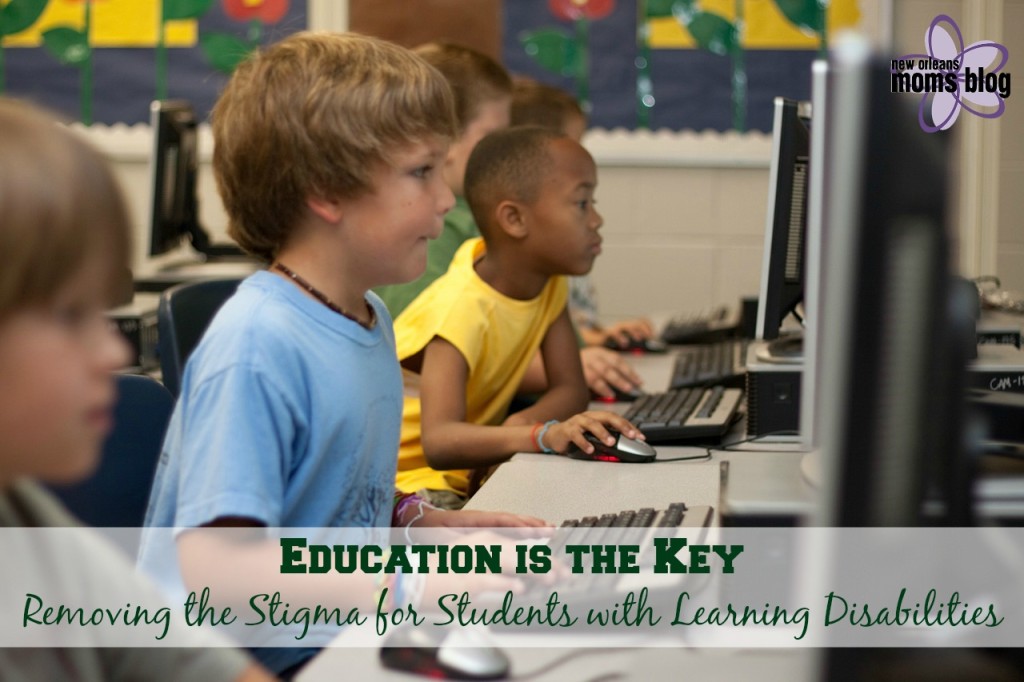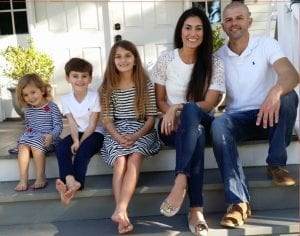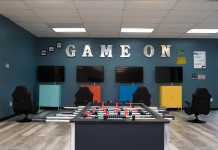Within the past few months, I’ve attended several social functions throughout the city which have led to quite a few of those “small talk” conversations that occur. Friendly exchanges of politeness or curiosity often lead to the question, “And what do you do?” I was surprisingly concerned with how many people had no idea about my profession as a learning specialist. Even more surprising was the lack of knowledge that almost every local school either has a learning specialist or an entire resource program. I was overwhelmed with comments such as, “I didn’t realize so many of our schools had that type of kid.” This led me to thinking, is there still a stigma? Are these students still looked at as the weaker ones, or dare I say … not smart?
 I occasionally hear these thoughts play out from my middle school students. In fact, fifty percent of what I focus on is confidence building. But they are adolescents. I would assume that this self-doubt is a part of the growing and maturing brain. But if the adults are unaware about learning specialists and school programs and not talking about it in the community, then how will our kids ever shake the feeling of not being as smart as the others in their own class or at other schools? How will they know that their approach to learning is not any less, but simply different?
I occasionally hear these thoughts play out from my middle school students. In fact, fifty percent of what I focus on is confidence building. But they are adolescents. I would assume that this self-doubt is a part of the growing and maturing brain. But if the adults are unaware about learning specialists and school programs and not talking about it in the community, then how will our kids ever shake the feeling of not being as smart as the others in their own class or at other schools? How will they know that their approach to learning is not any less, but simply different?
Our community needs to know that almost every local school has a program; therefore, there is certainly a need. Schools known for their academic rigor are developing and expanding their programs even more to accommodate the number of students with specific needs. Though, I can promise you it is not because there are so many weak students in our city. I work with creative, bright, and intelligent students on a daily basis. I’ve been doing this for 12 years in private schools throughout the city, and I can guarantee that many of these kids will run businesses or companies one day. Some of them already are. My goal is to make sure that by the time they realize, or even have an idea of what they want to do, be, or accomplish in their lives, that they do it knowing that their academic path was just as “normal” as anyone else.
I’m often asked why so many students today have diagnoses, and do I think this is accurate or real? Yes, it is absolutely real. The follow up question being, can this many children have ADHD?
 My answer is this :: Overall in the country, I think the percent does seem quite high. However, for me professionally, the answer is yes. I see it every day and have been for a while. I read the evaluations and the data is there. I observe them in their classrooms and the signs are real. Do I know the cause? No, I do not, but there is certainly a lot of research out there that will have you reading for days. The bottom line is this – in my 12 years, I have been working with students with a variety of diagnosis: dyslexia, dysgraphia, language disorder, anxiety disorder, and ADHD. It is also important to understand that ADHD is not just a diagnosis that labels kids for being hyper or not paying attention.
My answer is this :: Overall in the country, I think the percent does seem quite high. However, for me professionally, the answer is yes. I see it every day and have been for a while. I read the evaluations and the data is there. I observe them in their classrooms and the signs are real. Do I know the cause? No, I do not, but there is certainly a lot of research out there that will have you reading for days. The bottom line is this – in my 12 years, I have been working with students with a variety of diagnosis: dyslexia, dysgraphia, language disorder, anxiety disorder, and ADHD. It is also important to understand that ADHD is not just a diagnosis that labels kids for being hyper or not paying attention.
Almost all of us claim to zone out at times or have a difficult time paying attention. ADHD is deeper than that, and if someone is curious, they should read about the disorder. ADHD also relates to processing speed, working memory, and executive functioning skills. In addition, over half of individuals diagnosed with ADHD will also have a learning disorder or an emotional disorder. If a parent shares that their child is ADHD, and unless you were told or given the opportunity to read their evaluation, you may not know or realize that there could be a co-existing diagnosis.
Is your child’s learning profile anyone business?
Absolutely not. I understand that it is a personal decision to share anything about your child. However, if you keep the information too private and do not have open conversations with your child about their diagnosis, then the shame may begin.
Our schools are making the efforts to differentiate and accommodate students in a variety of ways. Instead of students labeling themselves as poor learners or even worse, “stupid,” they should be excited and relieved to learn both through home and school dialogue, that there are so many ways that people learn and more importantly, a variety ways to teach. Schools should be proud to offer learning specialists who are resources to both teachers and students and to have teachers that are innovative and forward thinking in their teaching. They are making their classrooms ready for all types of learners and their students ready for the real world.
About Kristen
 Kristen Bendich is the Middle School Learning Specialist at the Academy of the Sacred Heart. Born and raised in the New Orleans area, she graduated from Newman School and later earned her degree in Communication Disorders at Louisiana State University. She later went on to receive her certification is Special Education. She has been a special education teacher/learning specialist in both public and private schools since 2002. She and her husband, Mike, have three children Ellie, 8, Michael, 6, and Eliza-Mae, 3. Her son was recently diagnosed ADHD- combined type. Kristen has begun the early stages of teaching him about acceptance of his learning style.
Kristen Bendich is the Middle School Learning Specialist at the Academy of the Sacred Heart. Born and raised in the New Orleans area, she graduated from Newman School and later earned her degree in Communication Disorders at Louisiana State University. She later went on to receive her certification is Special Education. She has been a special education teacher/learning specialist in both public and private schools since 2002. She and her husband, Mike, have three children Ellie, 8, Michael, 6, and Eliza-Mae, 3. Her son was recently diagnosed ADHD- combined type. Kristen has begun the early stages of teaching him about acceptance of his learning style.

















Great article Kristen!!! Thanks for getting to word out there:)